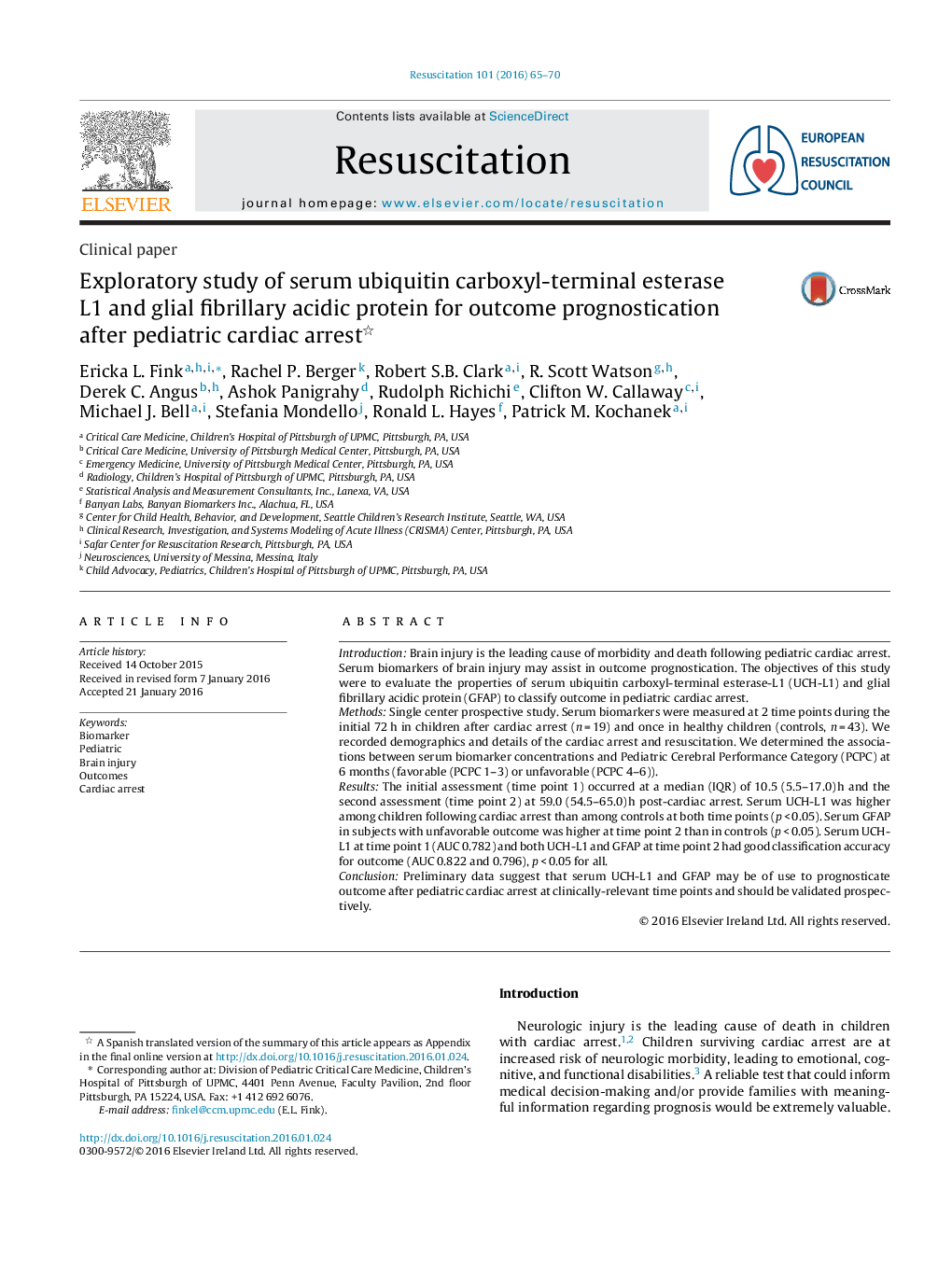| کد مقاله | کد نشریه | سال انتشار | مقاله انگلیسی | نسخه تمام متن |
|---|---|---|---|---|
| 5997606 | 1578983 | 2016 | 6 صفحه PDF | دانلود رایگان |

IntroductionBrain injury is the leading cause of morbidity and death following pediatric cardiac arrest. Serum biomarkers of brain injury may assist in outcome prognostication. The objectives of this study were to evaluate the properties of serum ubiquitin carboxyl-terminal esterase-L1 (UCH-L1) and glial fibrillary acidic protein (GFAP) to classify outcome in pediatric cardiac arrest.MethodsSingle center prospective study. Serum biomarkers were measured at 2 time points during the initial 72 h in children after cardiac arrest (n = 19) and once in healthy children (controls, n = 43). We recorded demographics and details of the cardiac arrest and resuscitation. We determined the associations between serum biomarker concentrations and Pediatric Cerebral Performance Category (PCPC) at 6 months (favorable (PCPC 1-3) or unfavorable (PCPC 4-6)).ResultsThe initial assessment (time point 1) occurred at a median (IQR) of 10.5 (5.5-17.0) h and the second assessment (time point 2) at 59.0 (54.5-65.0) h post-cardiac arrest. Serum UCH-L1 was higher among children following cardiac arrest than among controls at both time points (p < 0.05). Serum GFAP in subjects with unfavorable outcome was higher at time point 2 than in controls (p < 0.05). Serum UCH-L1 at time point 1 (AUC 0.782) and both UCH-L1 and GFAP at time point 2 had good classification accuracy for outcome (AUC 0.822 and 0.796), p < 0.05 for all.ConclusionPreliminary data suggest that serum UCH-L1 and GFAP may be of use to prognosticate outcome after pediatric cardiac arrest at clinically-relevant time points and should be validated prospectively.
Journal: Resuscitation - Volume 101, April 2016, Pages 65-70